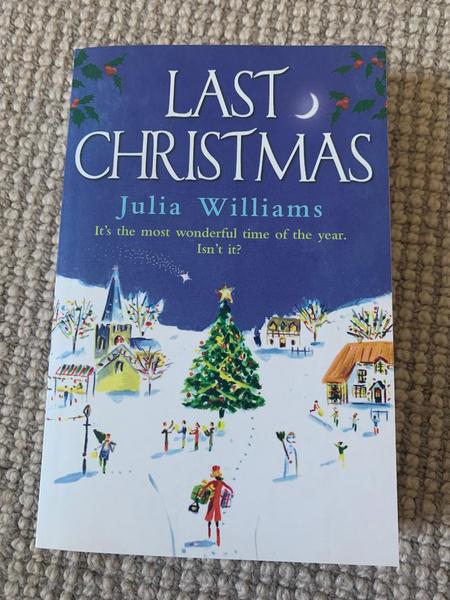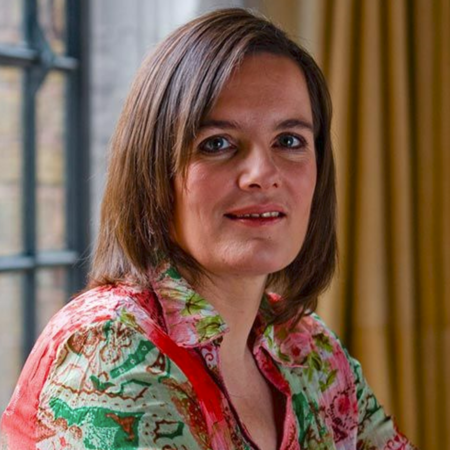Miracles are, by and large in short supply in our humdrum, bread-and-butter world.
We long for them, we hail the extraordinary moments that do occasionally thwart the drab banality of life as “miracle” and we love stories that embody them because, even if it is only fictional, here’s a chance to experience what it is like for the ordinary to be bested by its more luminously magical cousin.
Given our propensity for longing for and believing in miracles, there’s a lot to love in Last Christmas by Julia Williams which takes us into the lives of four beleaguered individuals all of whom are facing issues so dauntingly big that not even the buoyant magicality of Christmas seems to be able to defy them.
London-based Catherine aka Cat Tinsall – and yes, pay attention because every character in the novel has festively oriented names and no, it’s not even remotely cheesy and really rather quite lovely, especially given the genre the book occupies – is a viral sensation, her blog about being the perfect homemaker and wife making the heroine of women everywhere who want to believe that family life can be as effortless as Cat, known as the Happy Homemaker, makes it out to be.
But it’s all a great big fiction, the result of Cat’s need to believe it can be better and that her staggering marriage, her out-of-control kids and her mother who may or may be in the early stages of dementia, can be magicked into flawless form just by writing about in a pure and unflawed form.
‘Is this seat taken?’
Of all the seats in the room, why did he have to pick the one next to hers? Marianne stared into the eyes of the very same stranger whose feet she’d been sick on at New Year.
Alas, while Last Christmas is full to the brim of miracles, that is one thing that can’t simply be wished into existence.
Her husband Noel, who’s facing a bleak work environment where the young are in and the old are out, and redundancy looks more likely than not, is desperately trying to remake his reality and nothing seems to be working, save for the visits to a village called Hope Christmas up in Shropshire which sits close to a new development his company is working on.
It seems to have the loveable quirk and community warmth and belonging he wants and he wonders if there’s some way for it to become his home despite his family’s fast ties to the UK’s capital.
Two more people who are enjoying life in this quaint village, which is facing significant threats of its own, are Gabriel, father to Stephen and wife to geographically and emotionally absent wife Eve, and Marianne, a teacher who’s newly moved to the town and who is nursing a heart so badly broken that she wonders if she should just run back to London.
These two lost souls, who get to know each other and discover there may be more than a simple friendship in the offing, are emblematic of a novel that isn’t afraid to be grimly honest about life but which refuses to accept that herein lies the end of the story.
The joy of Last Christmas is that it takes these four involved and emotionally intense tales of people wishing miracles were possible but having to face up to the fact that they may not be, and let them breathe and take their time to unspool in ways that allow you the time to really get to know, and love, these characters.
They are each of us, and they embody the stresses and strains we all face in trying to get through life, even the most wonderful time of the year portion of it, and finding that what we hope and long for doesn’t always, in fact, almost never, materialise in front of us.
With subtle acknowledgements of angels and Jesus’s birth, and the sense that something bigger lies beyond the suffocatingly small and hugely impactful moments of life, Last Christmas is the kind of book that takes the idea that the festive season can be a time of redemption and healing and runs hard and heartwarmingly with it.
If you’re needing a shot in the arm, some restoration in your soul and a jolt of happy expectation to the heart then Last Christmas is the novel for you, full to the brim with the beguiling idea that we don’t have to remain stuck in the hellhole of the drab and dreary and coldly hard everyday and that there is magic and change to be had, even in the the bleakest and most wearing of circumstances.
‘Nothing to forgive.’ Noel reached out to Cat and squeezed her hand. Then getting up, they walked back to the car. Cat was right. It was Christmas Day. The least he could do was try and enjoy it.
It’s also the sort of book that happily sneaks up on you, starting quietly and small before opening up, its appeal growing by the page as Williams beautifully brings to life the characters and burnishes the settings.
She gives each of the initially separate threads a chance to really come into their own, and as they slowly wind themselves together and we begin to see how community can make a palpable difference to our lives, you will find yourself being wound ever more fully into this richly heartfelt and welcomingly grounded story.
The back cover blurb promises that you will “discover the true spirit of Christmas” and while Last Christmas is in some ways like a thousand other members of the festively redemptive genre to which is cosily belongs, it does seem to have a more potent hold than most on what Christmas can actually do and mean.
As you reach the end of Last Christmas, and do not fear, there are two more books in this series so you don’t have to say goodbye to these characters just yet, you will feel a little more buoyed, a little happier and yes a little more bound into and full of the Christmas spirit, and into the idea that maybe miracles do happen and we just need to be open to them and to grab hold of them when they come our way, not just at this time of the year but right throughout the year when we likely need it the most.

